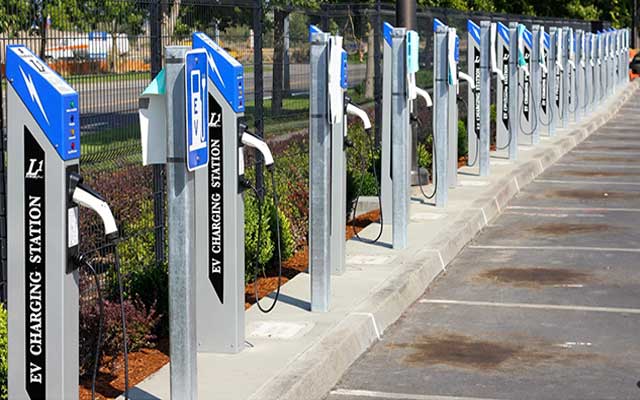The U.S. Transportation Department (USDOT) informed that it has approved the electric vehicle charging station plans for all 50 states, Washington and Puerto Rico covering about 75,000 miles (120,700 kms) of highways.
The November 2021 $1 trillion infrastructure bill provides $5 billion to help states install EV chargers along interstate highways over five years. States have access to more than $1.5 billion to help build EV chargers, USDOT said. The White House announced earlier this month it had approved 35 of the 50 state plans.
All approved Electric Vehicle Infrastructure Deployment Plans are available on the FHWA web site and funding tables for the full five years of the NEVI Formula program can be viewed here.
USDOT said states should fund DC Fast Chargers; stations should have at least four ports capable of simultaneously charging four EVs and install EV charging infrastructure every 50 miles (80.5 kms) along interstate highways and be located within 1 mile of highways.
Federal funds, under the National Electric Vehicle Infrastructure (NEVI) Formula Program, will cover 80 percent of EV charging costs, with private or state funds making up the balance.
By 2030, President Joe Biden wants 50 percent of all new vehicles sold to be electric or plug-in hybrid electric models and 500,000 new EV charging stations; he has not endorsed phasing out new gasoline-powered vehicle sales by 2035.
California’s Air Resources Board in August voted to require all new vehicles sold in the state by 2035 to be either electric or plug-in electric hybrids, a landmark move that could speed the end of gasoline-powered vehicles but must still be approved by the Biden administration before it can take effect.
California will allow automakers to sell up to 20 percent of 2035 models as plug-in hybrids.

